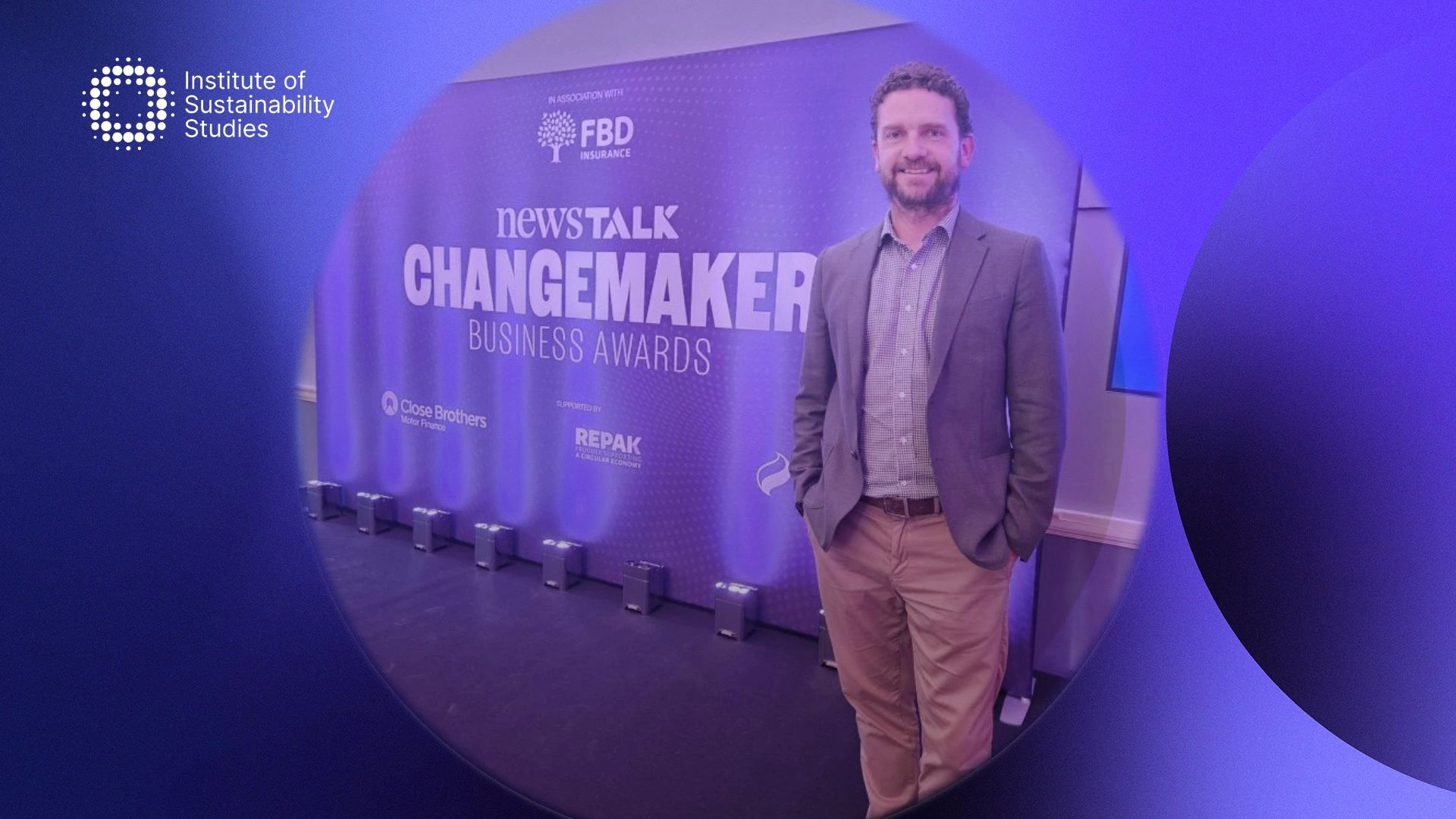According to research by Make My Money Matter, choosing a sustainable pension is 21 times more effective at reducing an individual’s carbon footprint than adopting a vegetarian diet, switching energy suppliers, and quitting flying combined. Your pension has the power to save our future and should be a consideration in corporate sustainability strategies. Research from MotherTree shows switching to a green pension provider and bank is the single most effective action individuals can take to fight the environmental crisis. Keep reading as we dive into everything you need to know about sustainable pensions and how to green yours.
Are pensions sustainable?
Most pensions are not sustainable. There is £37 trillion in pensions globally, with about 5% of that held with oil & gas companies.
If you have a default pension through your employer, then it’s likely to have investments in oil, gas, weapons and gambling. However, there are ways to reduce or even remove these “bad actor” industries without necessarily giving up returns.
A number of investment portfolios focus on investments that have a minimised environmental impact like renewable energy rather than investing in deforestation or fossil fuels.
The problems with traditional pensions
Throughout an individual’s working life, they will make frequent contributions to their pension scheme. This pension fund takes all of its members’ contributions and invests them with the overarching goal of growing their pension savings by the time the member retires from the working world.
The issue with this strategy is that much of that investment has traditionally been funding unethical, extractive, unsustainable, and damaging sectors like arms manufacturing, gambling, deforestation, and fossil fuels. For example, Barclays has invested 6.7 billion into the world’s biggest meat producer, JBS, over the last 7 years, a company that has been responsible for a considerable amount of deforestation.
Natwest, another bank, has been named concerning funding cluster munitions. Make My Money Matter has estimated these kinds of pension funds to have an average of 26 tonnes per pension annually. Many employers and employees are unaware of this hidden carbon footprint. Due to a lack of knowledge and visibility, many employees leave their contributions to be paid into the pension provider’s ‘default account’.
It has been estimated that just 22 percent of employees know where their pension funds are invested. The majority of people are paying into a pension scheme where they are unaware of what their money is being invested in, the conflicts with their personal stance, and how damaging it is. This represents a significant risk that their pension investments could conflict with their personal values without them even knowing it.
The potential of sustainable pensions
Lifestyle changes are a fantastic way to curb an individual’s carbon emissions. However, larger savings are possible by switching to a more ethical pension. By making the switch, employers and employees can have a greater impact. Several pension providers are now incorporating sustainable investing into their default accounts. However, there is still a considerable amount to make the switch, and all pension providers in the UK continue to allow investment in fossil fuels.
Make My Money Matter carried out research with Route 2 and Aviva on the impact of switching to green pensions. They discovered that by switching a policy of the value of £30,000, 19 tonnes of carbon could be saved annually. Moreover, a pension fund of £100,000 could save 64 tonnes of carbon per year. This is the equivalent of nine years of the average UK citizen’s carbon footprint.
The sustainability of your pension funds can also be aligned with your company’s wider climate strategy, in particular, net zero objectives. Green pensions can also be an avenue to engage your team members. Employees will likely be interested to learn how they can ensure their pension scheme funds have a positive contribution to society and the environment.
Moving to sustainable investing can also have a positive impact on things like brand reputation and business performance. By investing funds in sustainable policies, businesses are showing they are committed to achieving sustainability goals and carbon targets. Increasing evidence has also revealed investments that are good for society and the environment are also typically good investments financially.
How to green your pension
If you’re looking to green your pension to ensure the funds are not supporting unethical practices, here are some things you can do.
Become familiar with your employer’s pension plan
To start, it’s a good idea to become familiar with what your employer’s pension plan is invested in. Most workplace pensions will offer some kind of sustainable or ethical fund beyond the default one but there isn’t an array of choices. These funds will also typically charge more than the default option and still may not fully align with your personal sustainability goals.
Transfer old pensions
Many people have old pensions that they have left behind when they move on from different jobs. However, in the vast majority, those pensions will be invested in default funds chosen by the employer. A great deal of those will have exposure to fossil fuels. In saying that, if you are no longer satisfied with the way those funds are invested, you can make changes. Firstly, you need to know where your current pensions are invested.
Once you know this, you can decide what to do with them, and this often means consolidating them into a new online plan. Several consolidation firms help transfer pensions and have fossil-fuel plans. However, it is important to remember to compare any changes very carefully and ensure there will not be any negative consequences. The Ethical Investment Association website features a list of independent financial advisers specialising in ethical investment who can help.
Put pressure on pension providers
If you are in a workplace pension, the provider will have been selected by your employer. Unfortunately, if you stop paying into that pension and open up a new one, you could risk losing your employer contribution. An alternative way to go about this is to put pressure on pension providers from within to inspire them to change their investing ways.
If your workplace provider does not cater to your environmental values, Make My Money Matter offers a tool on its website that enables you to select your provider and send a pre-drafted letter requesting it to provide sustainable pension funds. Make My Money Matter has said this action has had a significant impact, and they have managed to help get £1.3 trillion in UK pension funds dedicated to net zero.
Be aware of greenwashing
Greenwashing isn’t specific to one industry; experts have also warned that greenwashing can be present with sustainable pensions. What’s more, it is even harder to spot due to the plethora of both sustainability and finance jargon.
Some funds brand themselves as ‘sustainable’, ‘responsible, or ‘ESG’, but there isn’t necessarily a way to determine how ethical or ESG these funds are. Currently, there is no common standard in how funds are described, and it is difficult to determine how ethical or ESG they are.
Partner with MotherTree to find greener options
Our mission at MotherTree is to make it effortless for people to choose greener options in life. We help businesses and individuals and offer a free money carbon calculator to help you become aware of the impact of your savings and investments and switch to greener providers.
Key takeaways – The future of sustainable pensions
Pensions represent £37.37 billion globally, 7 percent of the world economy. By making sure your bank and pension are investing ethically, you can dramatically curb your business and personal carbon footprints. Additionally, you can ensure your money goes into places you hope to see thrive in the next 10 years.
The average carbon footprint of a UK business is 75 tonnes, and if you add a bank that invests heavily in oil and gas, it doubles this, and that figure grows even higher if your pension is not being invested ethically. With this in mind, switching to a sustainable pension is one change that can have a seriously positive impact.
_____
Want to read more top voices?










